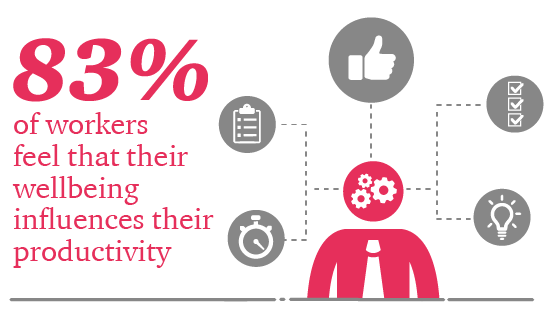 Admittedly “Be Well, Work Well” wasn’t my first choice at that time slot — I wanted to go to something on building employer brand, buzzword though that might be — but the room for that deal was too crowded, so I walked into “Be Well, Work Well” and it ended up really cool.
Admittedly “Be Well, Work Well” wasn’t my first choice at that time slot — I wanted to go to something on building employer brand, buzzword though that might be — but the room for that deal was too crowded, so I walked into “Be Well, Work Well” and it ended up really cool.
I don’t want to belabor the overall point of work-life balance and conscious meditation, so I’ll break this up into manageable (I think) chunks about the topic. Let’s roll.
Where do the best ideas come from? For many, it’s running or walking or generally exercising. But the white-collar office credo is that you need to be tethered to your desk/computer/spreadsheets/etc. Many people in this session raised their hand on the old “Do you eat lunch at your desk?” question. OK, so … stay static for 8-10 hours. That’s (a) unhealthy and (b) doesn’t generate the best ideas. Let your people out. Encourage them to walk/run during the day. Step challenges? Availability of showers?
Here is a resource: This is the PWC Habit Bank, whereby you can learn about small changes to make to your day. A habit takes somewhere between 21 and 66 days to “stick.” Start now.
About small changes: PWC does habit challenges and on the last one, 47,000 employees — that’s a lot of people — participated. You just need to challenge employees to change 1-2 small things per day. For example: “I won’t check and answer email while moving between meetings.” Small, but doable — and it’ll make your life better. Good stuff.
Here’s a video: … on how they do the voodoo they do.
This all reminds me a bit of “The Four-Way Win:” If you don’t know what that is, here ya go.
Do nothing for 2 minutes: There’s even a website to help you with that. Conscious meditation. Being with yourself. Not reacting to emails. Good stuff.
A breathing exercise: Close your eyes. Inhale for three seconds. Hold it for 2 at the top. Exhale for six. Do that 3-5 times. You can counter almost any stressful work situation/no-context email over the fence from your boss with that one. PWC actually used it in a contentious negotiation and it worked. Nice.
Realize that work-life balance can be a strategic advantage for companies: Towers Watson has proven this.
Employer brand matters, and the ability to walk/run/take calls outside matters: Employer brand (the session I was planning on attending, damn it!) matters because, look, at every trade show with a vendor platform, there’s a bunch of 48 year-old middle managers walking around terrified about the workload they have and their ability to ever see their children before bed again. What those guys need is talent. But unfortunately they work for a non-sexy widgets company and the talent wants to work for Amazon or Google or whoever the hell. You need a competitive differentiator around your employer branding — either you communicate well during hiring (people tell their friends when that happens), or you give a lot of “me time” and let employees be healthy on their own terms (again, it’s told to friends). You’ll never have the market cap of a Google, probably, but you can do logical, small things and get a bunch of impact. Ain’t that what we’re all looking for? Low-cost, high-impact, engaged-employees stuff?
Authors
Ted Bauer
Originally from New York City, Ted Bauer currently lives in Fort Worth, Texas. He's a writer and editor for RecruitingDaily who focuses on leadership, management, HR, recruiting, marketing, and the future of work. His popular blog, The Context of Things, has a simple premise -- how to improve work. Ted has a Bachelors in Psychology from Georgetown and a Masters in Organizational Development from the University of Minnesota. In addition to various blogging and ghost-writing gigs, he's also worked for brands such as McKesson, PBS, ESPN, and more. You can follow Ted on Twitter @tedbauer2003, connect with him on LinkedIn, or reach him on email at [email protected]
Recruit Smarter
Weekly news and industry insights delivered straight to your inbox.




